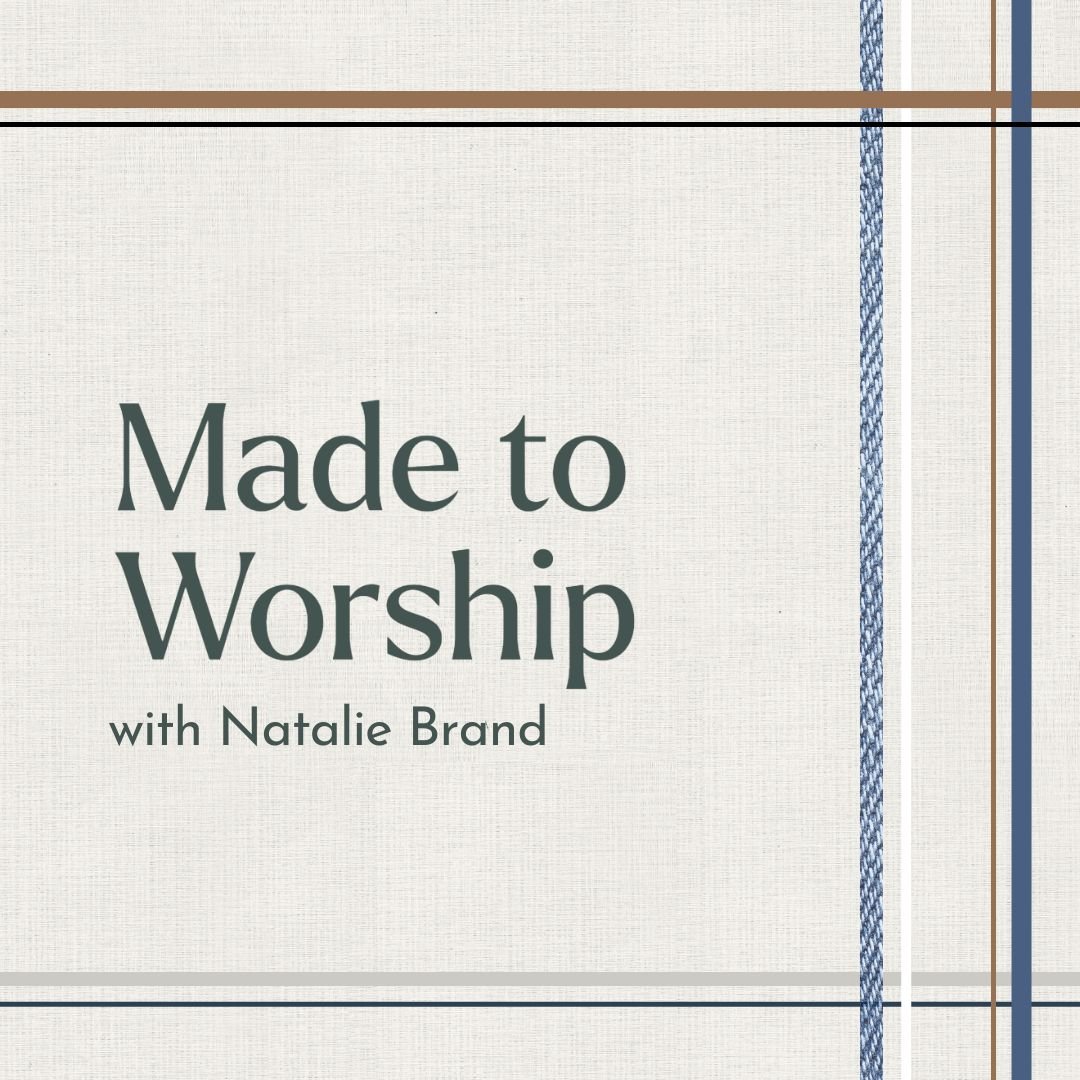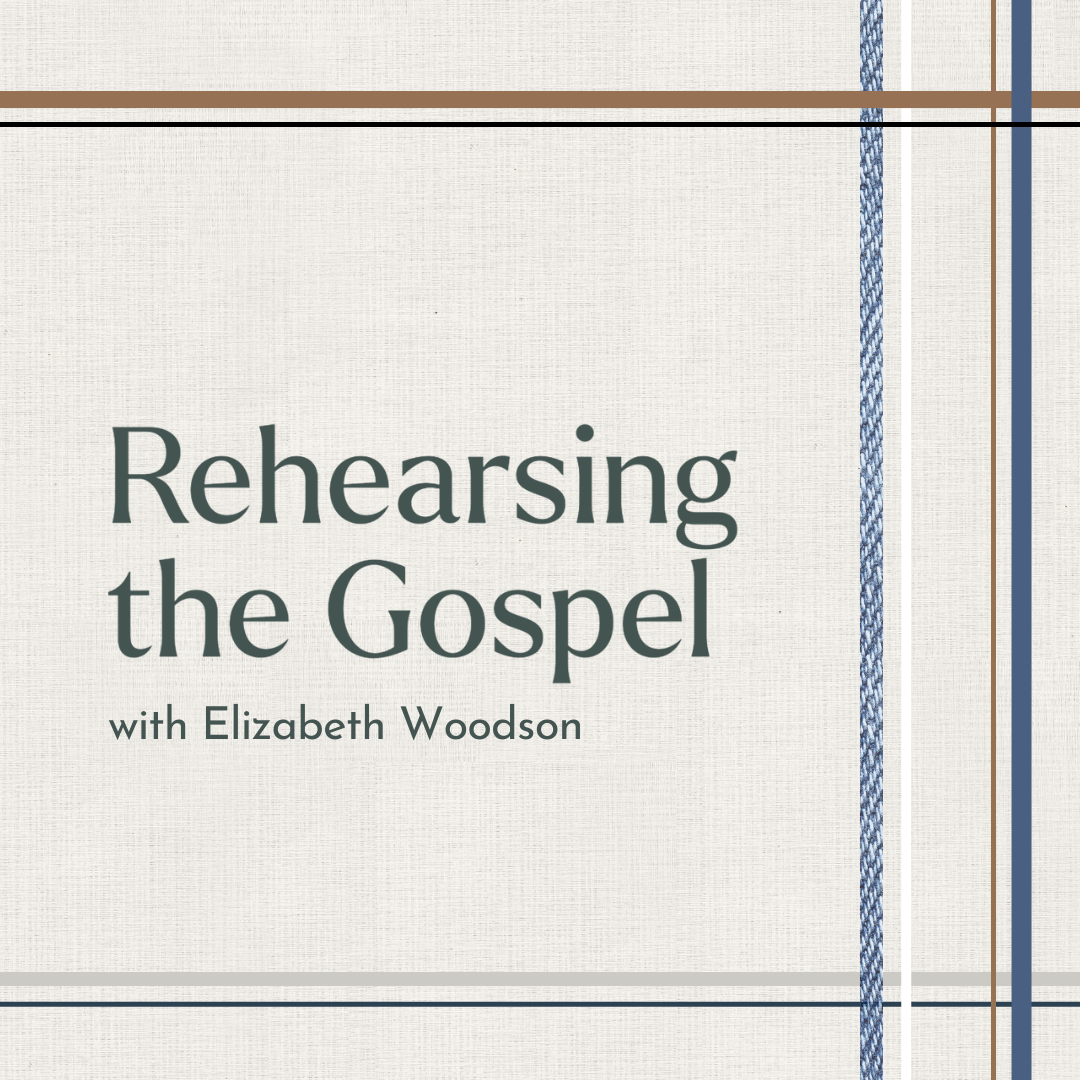Studying the Bible with Colleen McFadden
In this week’s episode, Hunter is chatting with Colleen McFadden about studying the Bible. Colleen is an incredible Bible teacher, and she is sharing some simple and helpful tips that will help you approach your Bible study with more confidence and excitement. Hunter and Colleen talk about how to read the Old Testament and the New Testament, how to see Christ throughout Scripture, how to understand context and cross-references, and—most importantly of all—how to meet God in the pages of his Word. We hope this episode compels you to open up your Bible and dig deeply in order to know God more through it!
INTERVIEW QUESTIONS
How has the Lord used Bible study to draw you to himself?
Generally speaking, what is the value of deep, personal Bible study? How is it integral to the life of a believer?
What are some principles that drive your Bible study?
Why is context so important? How does understanding the context of the passage help us understand and apply God's Word?
One of the principles you teach at Simeon Trust is that we need to understand the message for the original hearers before moving towards what the passage means for us. What are some ways you would encourage women to begin doing that?
Why is it important to look for gospel connections in the passage we're studying? How does that look different in the Old Testament and the New Testament?
How can we go about making good applications from the text we're studying?
What's your encouragement to women who have a desire to engage in deeper Bible study, but who feel intimidated and don't know where to start?
Who has had the greatest impact on the way you study the Bible? In what way?
NOTES & QUOTES
“The word that you take in then bears fruit to go out, whether that's going to be in your life or you're passing it on to others.”
“The first thing we need to do is pray and ask God for help. If it is truly him that does the work through his Word, then let's just pray and ask him.”
“I just ask, Lord, what is it that you want me to get from this passage today?”
Insight #1—Lauren Bowerman:
“Psalm 1, which is an introduction to the rest of the book of Psalms, is such a beautiful song. As you read it, you'll quickly notice that refrain Colleen talks about of the “wicked” and the “blessed.” The blessed man being the one who chooses not to walk in wickedness, but to delight in the law of the Lord, to plant himself by the streams of living water.
It’s so interesting and beautiful to read, isn’t it? This “counter-cultural,” “upside down” definition of what it means to be “blessed.” Because typically we we define our lives as “blessed” based on other measures, don’t we? It can be easy for us to feel blessed when we see the good gifts God has given us and when life feels good. This can make it difficult to reconcile when our life feels hard or dark or lonely. Are we still blessed?
But we see here in Psalm 1 that God seems to measure his blessing by a different standard… God calls his people blessed when they trust and delight in his Word. He calls them blessed when they meditate on the Scripture. He calls them blessed when they plant themselves beside him, drinking deeply from the everlasting waters (which Christ describes himself as in John 4), filling themselves with true goodness so that they do not wither in drought but produce fruit (fruit that is enabled and produced by that very Word they are abiding in!). He calls them blessed when they dwell in Scripture because they find him there.
Sisters, we have full access to draw from this well of living water. We have God’s written Word, his very revelation of himself. We get to delight in his law, meditate on it, and allow it to fill us and change us. Let’s not neglect this bountiful blessing that we have access to. Let’s run to it daily and drink deeply of it.”
“When I'm prepping [for our women's Bible study at church], it's the same thing. I ask, ‘Lord, what is it that our church needs to know? How are you going to build up your church, this specific body of believers, to live out the truths that we're learning?’”
“COMA: Context, Observation, Meaning, Application”
“I'm going to look at the context of this passage: What came right before, what comes right after? If I'm in an epistle, I want to understand the context of the original audience. What were they going through? Paul or Peter, whoever it is that's writing the letter, what were they going through? I also think about what's the structure of the passage, meaning how did the author organize the passage? Are there repetitions that would give me a clue? Is it a story? Maybe the story is organized by characters, or maybe there's a clear plot line that I can follow that helps me see better what's being emphasized in that passage.”
“When you rip something out of context, you're making it mean something it doesn't mean, and therefore you're applying it in a way that it shouldn't be applied.”
Re: 1 Corinthians 13, ask, “Why is this passage here? What were the original readers? What was their situation that Paul needed to address love?”
“It's really important to think about how the Bible uses the Bible,”
“Go back to those quotations. So if it quotes Isaiah 28, go back to Isaiah 28, read that chapter. What's going on? What is Isaiah saying there? Because when Peter quotes the one verse, he really has the context of that other chapter in Isaiah in mind.”
“No one's going to exhaust and know and understand the Bible ever in this lifetime.”
“It just is going to take some time, and that's okay. So just give yourself to the practice of it regularly.”
“You're never going to learn it all in a day. It's a process.”
Insight #2—Lauren Bowerman
“It’s a process. What deep encouragement that is to all of us who are on our journeys to know God more through his Word. Wherever you are on that journey, whether you’re opening a Bible for the very first time or have been studying God’s Word deeply for years…it’s such an encouragement to remember what Colleen said: “No one is going to exhaust and know and understand the Bible ever in this lifetime.” Why is that true? Because God himself is revealed in Scripture, and his character is inexhaustible in its goodness and fullness and holiness! It is this God that we meet on the pages of Scripture because he has chosen to reveal himself to us.
It’s a truth worth dwelling on: how God has revealed himself to us in Scripure and drawn near to us in Christ. Our response to his revelation is simply to draw near to him too in the most tangible way he has given us to do that: through his Word.
What might it look like for you to create space to incorporate a regular rhythm of Bible study in your life? How might you intentionally respond to God’s drawing near to you by drawing near to him in his Word?
Maybe this will look like setting your alarm 10 minutes earlier in the morning to spend time reading your Bible (then try increasing it to 15 minutes earlier, then 30 minutes!). Maybe it looks like implementing that encouragement Colleen told us at the beginning and taking time to pray before opening your Bible, meeting God in the moments of stillness and listening for his voice. Maybe it looks like turning off a podcast (yes, even this one!) and putting on an audio Bible instead for your drive or your walk today.
God’s Word reminds us that though we were once far off we have already been brought near by the blood of Christ (Eph. 2:13)! Scripture promises that as we draw near to God, he will draw near to us (James 4:8);
Friends, let us be quick to draw near to God through the means he has given us. Let’s treasure God’s Word, prioritize spending time in it, and find more and more of him in it.”
“When readers received a book, they did not receive one paragraph. They received the whole book. So we have to read it from beginning to end to know what is the literary flow of the book so that we can understand one specific passage and how they would have read it.”
“It's important to try to see the gospel in every passage because it's what Jesus would do (Luke 24).”
“The Old Testament is more predicting and anticipating Christ, where the New Testament would be applying Christ and telling about him, telling about his life and what he did and what he came to do for us specifically.”
“If we have the lens of the gospel, it helps us avoid moralistic applications.”
“God's Word does God's work in God's people.” (not an original quote to Colleen)
RESOURCES
A good study Bible
Bible dictionaries
Tyndale’s book-specific commentaries
One-to-One Bible Reading Dave Helm
You can view Journeywomen’s full list of resources for studying the Bible here
DISCUSSION QUESTIONS
How has the Lord used Bible study to draw you to himself?
How have you seen the character of God in Scripture? Are there specific passages where it stands out to you?
Where in Scripture do you most clearly see the gospel? Consider memorizing that passage.
What prevents you from regularly spending time in God’s Word? What small step might you take this week to pursue the Lord through Scripture?
What might you do or implement based on what you learned in this week’s episode?
EPISODES FROM BACK TO THE BASICS SERIES
ARTICLES FROM THE BACK TO THE BASICS SERIES
IMPORTANT NOTE
Journeywomen interviews are intended to serve as a springboard for continued study in the context of your local church. While we carefully select guests each week, interviews do not imply Journeywomen's endorsement of all writings and positions of the interviewee or any other resources mentioned.
Affiliate links used are used where appropriate. Thank you for supporting the products that support Journeywomen!

















